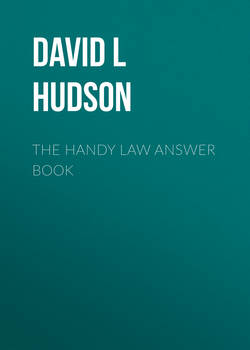Читать книгу The Handy Law Answer Book - David L Hudson - Страница 104
На сайте Литреса книга снята с продажи.
Does the First Amendment protect advertising?
ОглавлениеYes, in the mid 1970s the U.S Supreme Court ruled that advertising was a form of speech entitled to First Amendment protection. In an earlier ruling in Valentine v. Chrestensen (1942) the U.S. Supreme Court had ruled that the First Amendment does not protect “purely commercial advertising.”
However, three decades later the Court realized that the “free flow of commercial information” was important in society and that people have a right to receive information and ideas in a commercial culture. The Court reached this conclusion in Virginia Pharmacy Board v. Virginia Consumer Council (1976; see LegalSpeak, p. 52), a case involving a challenge to a Virginia law that forbade pharmacists from advertising the prices of prescription drugs. The state pharmacy board argued that there should be no free-speech protection for purely commercial advertising. The board also contended that the state could prohibit pharmacists from advertising prices as a way to preserve professionalism.
The Supreme Court rejected these arguments and overruled Valentine v. Chrestenson in the process. The state pharmacy board wanted to prevent price advertising to protect the public. The Supreme Court said that there was another alternative to suppressing this information: “That alternative is to assume that this information is not in itself harmful, that people will perceive their own best interests if only they are well enough informed, and that the best means to that end is to open the channels of communication rather than to close them.”
